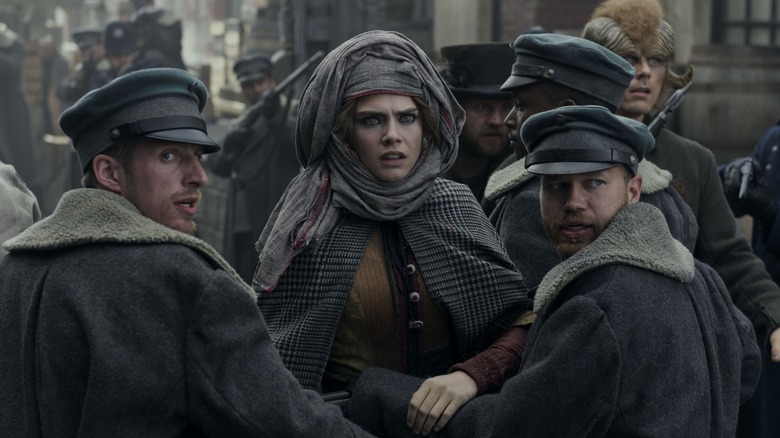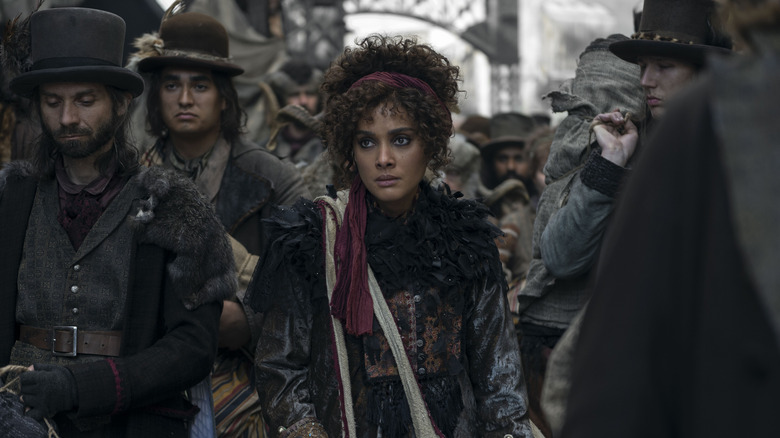Cara Delevingne Loves Carnival Row's Willingness To Discuss Oppression
Fiction has a long history of telling resonant stories, and there is no better example of this than genre television. Cult classic "Buffy the Vampire Slayer" uses horror as a metaphor for high school, just as "Carnival Row" weaponizes its genre for the greater good. The Prime Video series does not dabble in delicacy. Instead, it gets straight to the point of weaving a story full of social commentary.
On the Row, otherworldly species known as the Pix attempt to live side-by-side with humans in a fantastical Victorian universe. Fawns and faeries are just some species oppressed because they look different than those in charge. If this sounds familiar, that is entirely the point. It is the primary concept of the series and its greatest asset. Series lead Cara Delevingne, who plays rebellious fae Vignette Stonemoss, told Collider why her show feels different from anything else on television.
"[I]n terms of the story, it was unbelievable to be able to explore that social commentary through a fantasy lens," Delevingne explained. She went on to add: "It's just really beautiful and educational, in that way, or at least it's entertaining and it starts conversations that people maybe find hard to have. It's talking about oppression, and all of these other things, which is just so brilliant."
These topical themes in "Carnival Row" paved the way to a unforgettable series finale important to the creatives behind the show.
Cara Delevingne pushed for other modern conversations
With only two seasons to tell a relatively ambitious show, there was a lot of ground to cover. But the "Carnival Row" finale did not disappoint as it wrapped up its characters. Many may have noted the Season 2 finale lacks the traditional Hollywood ending, but that was by design. While the series is arguably based around the romance between Vignette and her hybrid lover Rycroft "Philo" Philostrate (Orlando Bloom), the show resolves with the fae marrying her longtime confidante, Tourmaline Larou (Karla Crome).
This ending not only steers away from the heteronormativity present in most romantic stories but is more fitting with what "Carnival Row" is about. Polyamory is common in fae culture, and that romantic dynamic does not have a large voice in mainstream media. Like themes of oppression, Cara Delevingne was also passionate about depicting this story.
"[W]e didn't want to do that kind of the predictable, happily ever after between Philo and Vignette. That would have been forced and kind of a little bit boring, honestly," executive producer Erik Oleson confessed to Decider.
But even more importantly, this union was inspired by Delevingne and her passion for this representation. "And Cara also in real life is a major queer advocate and we wanted to lean into her real life desires to kind of give voice to that community," Oleson added. Vignette can love both Philo and Tourmaline which is a happy ending in its own right.

